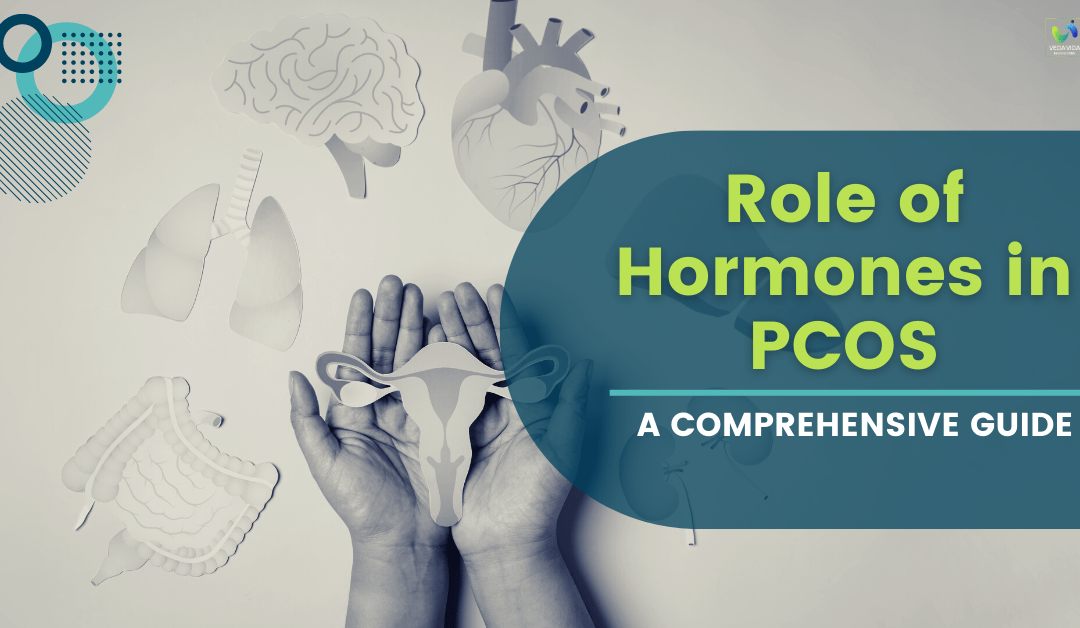Polycystic Ovary Syndrome (PCOS)
is a hormonal disorder that affects up to 10% of women of reproductive age. The condition is characterized by the presence of multiple cysts in the ovaries, irregular menstrual cycles, and high levels of male hormones. In this blog, we’ll explore the hormones that play a significant role in PCOS and how they affect the body.
- Insulin
Insulin is a hormone produced by the pancreas that regulates blood sugar levels. Women with PCOS often have high levels of insulin due to insulin resistance, which means the body is not responding to insulin properly. High insulin levels can cause the ovaries to produce more androgens (male hormones), leading to symptoms such as acne, excess hair growth, and irregular periods.
- Androgens
Androgens are male hormones that are also present in women. In PCOS, the ovaries produce too much androgen, which can lead to symptoms such as acne, excess hair growth (hirsutism), and male-pattern baldness. High levels of androgens can also disrupt ovulation, leading to irregular menstrual cycles or a lack of periods.
- Estrogen
Estrogen is a female hormone that plays a crucial role in the menstrual cycle and pregnancy. In PCOS, the balance of estrogen and progesterone is disrupted, leading to irregular periods and difficulty getting pregnant. Some women with PCOS may also have low levels of estrogen, which can cause vaginal dryness and other symptoms.
- Progesterone
Progesterone is a hormone produced by the ovaries after ovulation. It helps regulate the menstrual cycle and prepare the body for pregnancy. Women with PCOS may not ovulate regularly, leading to low levels of progesterone and irregular periods.
- Follicle-stimulating hormone (FSH)
FSH is a hormone produced by the pituitary gland that stimulates the ovaries to produce eggs. In PCOS, the levels of FSH are often lower than normal, leading to irregular ovulation and menstrual cycles.
- Luteinizing hormone (LH)
LH is a hormone produced by the pituitary gland that stimulates the ovaries to produce androgens. Women with PCOS often have high levels of LH, which can lead to excess androgen production and other symptoms.
In conclusion, PCOS is a complex hormonal disorder that involves several different hormones. High levels of insulin, androgens, and LH, as well as low levels of estrogen, progesterone, and FSH, can all contribute to the symptoms of PCOS. If you suspect you have PCOS, it’s essential to speak to your healthcare provider to get an accurate diagnosis and appropriate treatment.
